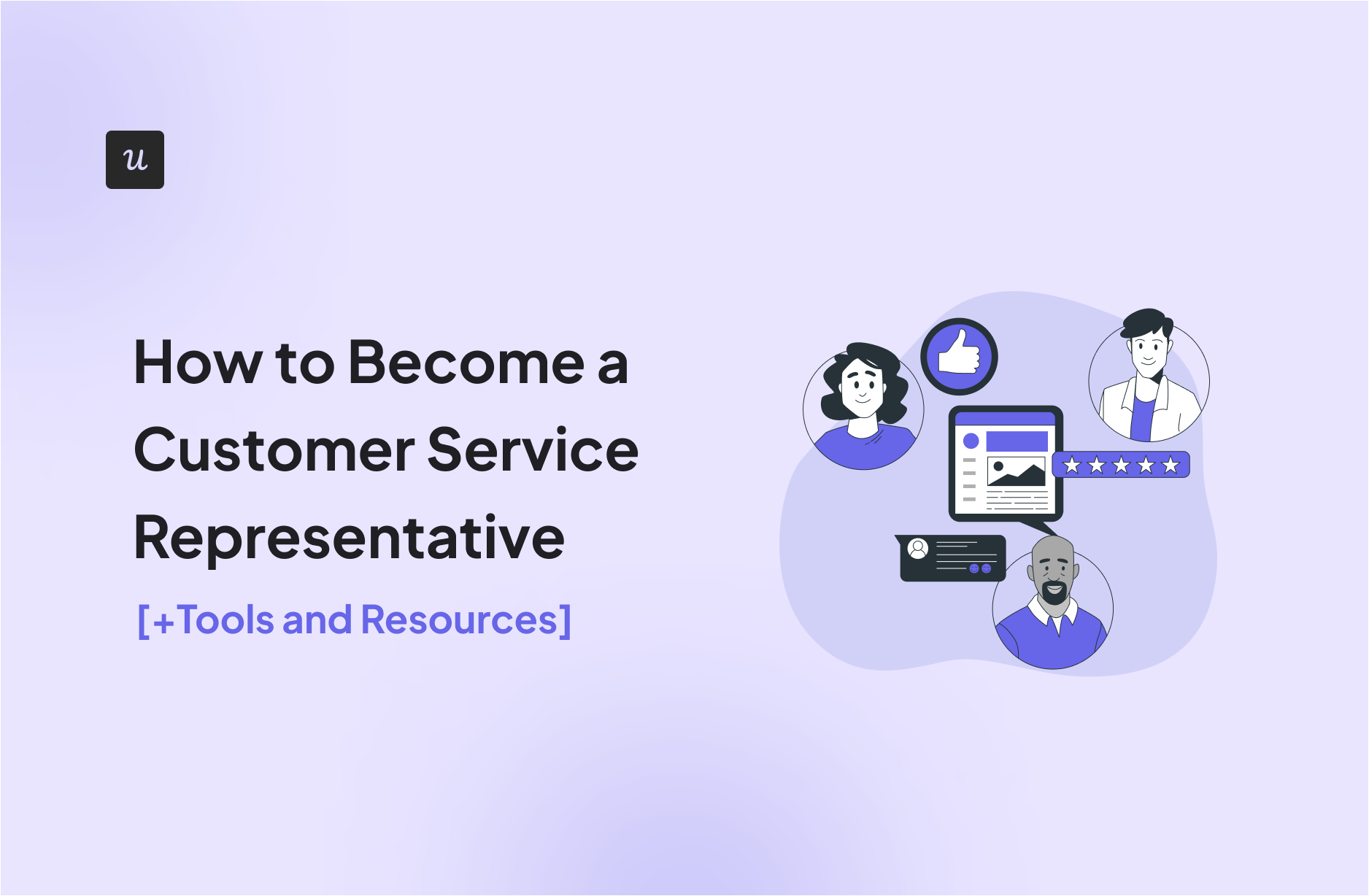
How to Become a Customer Service Pro: Expert Tips
Becoming a customer service professional involves mastering communication skills and empathy. It’s about understanding people and helping them solve problems effectively.
Customer service roles are crucial in every industry, offering support to clients and ensuring satisfaction. In today’s fast-paced world, businesses rely heavily on good customer service. Why? Because it builds trust and loyalty. A great customer service representative listens carefully, responds quickly, and resolves issues efficiently.
This job is more than just answering calls or emails. It requires patience and a positive attitude. As companies strive to improve customer experiences, the demand for skilled service professionals grows. Whether you’re starting fresh or transitioning from another field, acquiring the right skills is essential. In this guide, we’ll explore the steps to become a successful customer service representative. Let’s dive into the journey of enhancing your skills and becoming an asset to any company.

Essential Skills For Customer Service
Becoming a customer service professional requires a unique blend of skills. These skills are essential for delivering exceptional customer experiences and ensuring customer satisfaction. Whether you’re interacting with customers face-to-face or through digital platforms, mastering the core competencies will set you apart. Below, we explore the vital skills required to excel in customer service.
Communication Skills
Effective communication is the backbone of customer service. It encompasses both verbal and non-verbal skills. Active listening is crucial as it helps you understand customer needs and respond appropriately. Here are some key components:
- Clarity and Conciseness: Explain solutions clearly to avoid misunderstandings.
- Positive Language: Use encouraging words to create a friendly atmosphere.
- Team Collaboration: Share information with colleagues to improve customer support skills.
Here’s a simple table highlighting aspects of effective communication:
| Aspect | Description |
|---|---|
| Listening | Understanding customer concerns thoroughly. |
| Speaking | Delivering information in a straightforward manner. |
| Writing | Crafting clear emails and messages. |
Problem-solving Abilities
Strong problem-solving abilities are vital in customer service roles. They help in resolving issues efficiently and maintaining customer satisfaction. Here are some skills that enhance problem-solving:
- Conflict Resolution: Address disputes with calmness and fairness.
- Emotional Intelligence: Recognize and manage emotions to handle tricky situations.
- Critical Thinking: Analyze problems and devise practical solutions.
Being service-oriented means prioritizing customer needs and finding solutions swiftly. The ability to adapt and think on your feet is essential. A structured approach to identifying issues and implementing solutions makes a difference.
Empathy And Patience
Empathy and patience are fundamental for building strong relationships with customers. They contribute to a service-oriented mindset and enhance customer experience. Consider these aspects:
- Emotional Intelligence: Connect with customers by understanding their emotions.
- Interpersonal Skills: Foster trust through genuine interactions.
- Patience: Allow customers time to express their concerns and questions.
Empathy involves putting yourself in the customer’s shoes, making them feel valued and understood. Patience ensures you remain calm, even in stressful situations. Together, these qualities create a supportive environment for customers.
Choosing The Right Industry
Choosing the right industry is a crucial step in becoming a successful customer service professional. The field you select will shape your career path and the skills you develop. Different industries demand unique expertise and offer varied experiences. Understanding these differences helps you make an informed decision. Below, we explore opportunities in retail, tech support, and hospitality to guide your choice.
Retail Opportunities
The retail sector offers a diverse range of customer service roles. It’s an ideal starting point for those who enjoy direct customer interaction. Working in retail customer support requires effective communication and empathy in customer service.
- Face-to-face interaction with customers.
- Opportunities to improve problem-solving abilities.
- Develops strong customer interaction techniques.
In retail, you learn to handle various customer needs and preferences. This experience builds conflict resolution skills. Retail jobs often come with flexible hours, which can be a plus for many.
| Retail Position | Key Skills |
|---|---|
| Sales Associate | Customer Interaction, Communication |
| Cashier | Attention to Detail, Empathy |
| Customer Service Representative | Problem-Solving, Conflict Resolution |
Tech Support Roles
Tech support roles are perfect for those interested in technology and helping others. These positions focus on providing technical assistance to customers facing issues with products or services.
- Requires strong problem-solving abilities.
- Involves assisting customers remotely via phone or chat.
- Demands excellent customer service skills.
Tech support offers a chance to work in a fast-paced environment. You will often deal with complex problems, enhancing your technical skills. This role can lead to advanced positions in IT and customer service management.
| Tech Support Position | Key Skills |
|---|---|
| Help Desk Technician | Technical Knowledge, Communication |
| Support Specialist | Problem-Solving, Customer Interaction |
| Technical Support Analyst | Technical Assistance, Analysis |
Hospitality Sector
The hospitality sector is ideal for those who thrive in dynamic environments. It requires a blend of hospitality training and empathy in customer service.
- Focuses on creating memorable experiences for guests.
- Requires a high level of effective communication.
- Offers diverse service industry careers.
Hospitality roles involve working in hotels, restaurants, and event planning. They demand flexibility and quick thinking to meet guests’ needs. This sector is perfect for those who enjoy helping people and creating positive experiences.
| Hospitality Position | Key Skills |
|---|---|
| Front Desk Agent | Customer Interaction, Communication |
| Concierge | Empathy, Problem-Solving |
| Event Coordinator | Planning, Conflict Resolution |
Educational Background
Customer service roles are vital in any business. They bridge the gap between a company and its customers. Having the right educational background is essential to excel in these roles. A solid foundation in education provides the skills needed in customer service. From empathy in customer service to problem-solving abilities, education plays a key role. Let’s explore the educational path for those interested in pursuing a career in customer service.
High School Diploma
A high school diploma is often the first step toward a career in customer service. It provides basic skills required in this field. Here’s how it helps:
- Communication Training: Schools teach effective communication. This is crucial for handling customer inquiries.
- Problem-Solving Abilities: Subjects like mathematics and science enhance logical thinking.
- Interpersonal Skills Development: Group projects and activities build teamwork skills.
Having a high school diploma shows employers you have a foundational education. It is often the minimum requirement for entry-level positions. The curriculum also includes subjects that help in understanding different perspectives. This is valuable for empathy in customer service. Thus, a high school diploma lays the groundwork for building a service-oriented mindset.
Relevant Certifications
Certifications enhance your qualifications in customer service. They show your commitment to the field. Here are some useful certifications:
- Customer Support Skills Certification: Focuses on improving customer interaction techniques.
- Conflict Resolution Techniques Certification: Teaches how to handle disputes effectively.
- Call Center Training Certification: Prepares you for specific roles in call centers.
These certifications can be obtained online or through training centers. They provide specialized knowledge. For instance, communication training helps in managing customer expectations. Meanwhile, conflict resolution techniques are beneficial for maintaining customer satisfaction. Adding certifications to your resume can make you stand out in the job market.
Higher Education Options
While not always required, higher education can be beneficial. It offers deeper insights into customer service strategies. Consider these options:
| Degree | Focus | Benefits |
|---|---|---|
| Associate’s Degree | Business Administration | Basic management and service skills |
| Bachelor’s Degree | Marketing | Understanding customer needs and market trends |
Higher education can enhance your interpersonal skills development. It also provides opportunities for internships. These practical experiences are invaluable in understanding customer satisfaction strategies. A degree can lead to advanced roles, offering better career prospects.
Gaining Experience
Starting a career in customer service requires more than just a friendly attitude. It’s about gaining experience that shapes your ability to handle customer interactions effectively. Experience can be gained through various avenues, each offering unique insights into the world of customer support. This journey helps develop essential skills like communication, empathy in customer service, and problem-solving abilities. Let’s explore how internships, volunteering, and entry-level positions contribute to building a strong foundation in customer service.
Internships
Internships provide a structured environment to learn and apply customer service training. They often offer hands-on experience in real-world settings where you can enhance your customer support skills. Internships can be paid or unpaid, but the valuable experience gained is often worth the investment.
- Exposure to diverse scenarios: Internships expose you to various customer interaction scenarios, helping you hone your communication skills.
- Networking opportunities: They allow you to connect with industry professionals, which can be beneficial for future career prospects.
- Skill development: You get to work on conflict resolution and improve your problem-solving abilities in a supervised setting.
Consider internships in call centers or companies known for exceptional customer service. Many organizations offer structured programs aimed at developing a service-oriented mindset and enhancing customer satisfaction.
Volunteering
Volunteering is another valuable path to gaining experience in customer service. It offers flexibility and can be a rewarding way to develop communication skills and empathy in customer service. Volunteer roles often involve dealing with people from diverse backgrounds, enhancing your ability to adapt and communicate effectively.
- Community involvement: Volunteering connects you with different communities, expanding your understanding of customer needs.
- Skill enhancement: It offers a platform to practice customer interaction and develop a service-oriented mindset.
- Personal growth: Volunteering can improve your conflict resolution skills, essential for managing challenging situations.
Seek volunteer opportunities in non-profit organizations or community service programs. These roles often require direct interaction with people, providing a practical setting to cultivate customer support skills.
Entry-level Positions
Starting in entry-level positions is a direct approach to immerse yourself in the customer service industry. These roles are often available in retail, hospitality, or call centers, offering opportunities to build a solid foundation in customer service.
- Hands-on experience: Working in entry-level positions provides direct exposure to customer interactions, helping refine your communication skills.
- Skill building: You develop problem-solving abilities by addressing customer concerns and ensuring customer satisfaction.
- Career progression: Entry-level roles can lead to advanced positions, offering long-term growth opportunities in the industry.
Focus on positions that emphasize customer interaction and service-oriented mindset. These roles are crucial for gaining call center experience and understanding the dynamics of customer support.
Mastering Customer Relationship Management
Becoming an expert in customer service is a rewarding journey. At the heart of this journey lies the ability to master Customer Relationship Management (CRM). CRM is more than just a tool; it’s a strategy for nurturing relationships with clients. By understanding CRM, you can effectively engage with customers, solve their problems, and enhance their experience. This ensures service excellence and boosts customer satisfaction metrics.
Crm Software Basics
CRM software is a crucial part of any customer service toolkit. These platforms help manage interactions with current and potential customers. The software organizes information to streamline processes, improve customer relationships, and increase profitability. Key features of CRM software include:
- Contact Management: Stores and organizes customer information.
- Interaction Tracking: Records every interaction, aiding in effective communication.
- Task Automation: Automates routine tasks like sending follow-up emails.
- Reporting and Analytics: Provides insights into customer satisfaction metrics.
Choosing the right CRM software depends on business needs. Here’s a simple comparison table:
| Feature | Basic CRM | Advanced CRM |
|---|---|---|
| Contact Management | ✔️ | ✔️ |
| Automation | ❌ | ✔️ |
| Analytics | ✔️ | ✔️ |
Building Customer Profiles
Creating detailed customer profiles is essential for effective CRM. A customer profile is a collection of data points that give insights into customer preferences and behaviors. Customer Profile Management involves the following steps:
- Data Collection: Gather data through forms, surveys, and feedback management systems.
- Data Analysis: Use analytics tools to understand customer needs and preferences.
- Profile Updating: Regularly update profiles to keep information accurate and relevant.
Building profiles helps in personalizing interactions. By knowing customers better, you can tailor your services to their needs. This enhances client engagement strategies and boosts satisfaction.
Tracking Interactions
Tracking interactions is a vital part of CRM. It involves recording and managing every customer interaction, from emails to phone calls. This process helps in understanding customer history and preferences. Use the following interaction tracking tools:
- Email Tracking: Logs emails to ensure no communication is missed.
- Call Logs: Records phone interactions for future reference.
- Chat History: Keeps a record of online chats for seamless follow-up.
Tracking interactions supports problem-solving techniques by providing a comprehensive view of customer issues. This helps in delivering quick and effective solutions, improving customer support skills and ensuring service excellence. By mastering CRM, you build stronger relationships and enhance overall customer satisfaction.

Effective Communication Techniques
Becoming a customer service professional requires a variety of skills, but none are as crucial as Effective Communication Techniques. These techniques ensure smooth interactions and help resolve issues efficiently. Mastering these skills leads to higher customer satisfaction and service excellence. Let’s explore three key aspects of effective communication: active listening, clear messaging, and positive language.
Active Listening
Active listening forms the backbone of customer support skills. It involves more than just hearing words. It requires understanding the customer’s needs and emotions. When engaging in customer interaction, consider these tips:
- Focus on the speaker: Minimize distractions and give your full attention.
- Use non-verbal cues: Nod or use facial expressions to show understanding.
- Reflect and paraphrase: Repeat back what the customer says to confirm understanding.
- Empathy in customer service: Show genuine concern for the customer’s issue.
These techniques not only enhance verbal communication but also build trust and rapport. Customers feel valued when their concerns are acknowledged. This leads to better conflict resolution and increased customer satisfaction.
Clear Messaging
Clear messaging is crucial for effective communication. Misunderstandings can lead to frustration and unsolved issues. Here are some ways to ensure clarity:
- Use simple language: Avoid jargon or technical terms that might confuse the customer.
- Be concise: Get to the point quickly to maintain the customer’s attention.
- Organize your thoughts: Structure your message logically.
- Verify understanding: Ask the customer to repeat back the message to ensure clarity.
Clear messaging enhances problem-solving skills by ensuring that both the customer and the service representative are on the same page. This alignment is crucial for efficient conflict resolution and achieving service excellence.
Positive Language
Using positive language in customer service can transform a negative experience into a positive one. It sets the tone for a productive interaction and boosts customer satisfaction. Consider these strategies:
- Focus on solutions: Instead of saying “I can’t,” say “Here’s what I can do.”
- Use encouraging words: Words like “certainly,” “absolutely,” and “gladly” create a positive vibe.
- Reframe negatives: Turn negative phrases into positive ones. For example, “This product is not available” becomes “This product will be available next week.”
- Express enthusiasm: Show excitement to help the customer solve their issue.
Positive language is a key aspect of verbal communication. It not only helps in providing solutions but also in enhancing the overall customer experience. When customers feel good about the interaction, they are more likely to return, ensuring long-term loyalty.
Handling Difficult Customers
Handling difficult customers is a crucial part of becoming a skilled customer service representative. These interactions can be challenging, but mastering them is essential for achieving service excellence. Engaging with upset customers requires a blend of empathy, effective communication, and problem-solving abilities. This helps in transforming a negative experience into a positive one, ensuring customer satisfaction and loyalty.
De-escalation Strategies
De-escalation strategies are vital in handling difficult customers. They help in calming down a tense situation and restoring a sense of cooperation. Here are some effective techniques:
- Active Listening Techniques: Pay attention and show that you understand their concerns. This builds trust and eases their frustration.
- Empathy In Customer Service: Show empathy by acknowledging their feelings. Phrases like “I understand how you feel” can be very reassuring.
- Calm Tone of Voice: Maintain a calm and steady voice. This helps in reducing the customer’s emotional intensity.
- Clarifying Questions: Ask questions to clarify the issue. This shows your commitment to solving the problem effectively.
Implementing these strategies can significantly ease tense interactions, leading to better outcomes for both parties.
Conflict Resolution Skills
Conflict resolution skills are essential in customer support. They ensure that disagreements are resolved amicably. Here are some key skills to focus on:
| Skill | Description |
|---|---|
| Effective Communication | Clearly express solutions and options. This ensures that the customer understands the steps being taken. |
| Problem-Solving Abilities | Quickly identify the root cause of the issue and offer practical solutions. |
| Interpersonal Skills | Build rapport with the customer. This makes it easier to navigate difficult conversations. |
Developing these skills leads to effective conflict management and enhances customer satisfaction.
Maintaining Professionalism
Maintaining professionalism is crucial in every customer interaction. A professional demeanor fosters respect and trust. Here are some ways to uphold professionalism:
- Stay Calm Under Pressure: Maintain composure, even in heated situations. This shows maturity and confidence.
- Use Professional Language: Avoid slang or jargon. Clear and formal language is always best.
- Follow Up: Ensure issues are resolved by following up. This demonstrates commitment to service excellence.
- Continuous Learning: Regularly update your customer support skills. This helps in providing top-notch service.
Professionalism in customer service creates a positive impression and enhances the overall customer experience.

Advancing Your Career
Thinking about a career in customer service? It can be a rewarding path. Meeting new people and solving problems are just the start. But what about advancing your career? There are many ways to move forward. Whether you’re just starting or looking to grow, understanding how to climb the ladder is key. Let’s explore the ways you can advance in the customer service field.
Career Pathways
The journey to career advancement in customer service is varied. There are several pathways you can explore:
- Team Leader: Lead and guide a team. Ensure that customer satisfaction strategies are met.
- Customer Service Manager: Oversee customer support skills. Train and develop your team.
- Quality Assurance Specialist: Focus on maintaining quality. Ensure that communication skills are top-notch.
- Trainer: Provide customer service training. Help others improve their problem-solving abilities.
Each role offers different challenges and rewards. Some may focus on direct interaction, while others might emphasize strategy and planning. Understanding your strengths can help you choose the right path. Looking into job opportunities in customer service can also give you insight into potential roles.
Networking Opportunities
Networking in customer service is crucial. It opens doors to new opportunities and helps in career advancement:
- Join Professional Groups: Engage with peers and share experiences.
- Attend Industry Conferences: Learn about the latest trends and innovations.
- Online Platforms: Use platforms like LinkedIn to connect with others in the field.
Building connections can lead to mentoring relationships. It can also provide insights into different customer service certifications or courses you might not know about. Effective networking can boost your professional development and make you more visible in the industry.
Continuous Learning
Continuous learning is vital in customer service. It keeps your skills fresh and relevant:
- Enroll in Workshops: Improve your customer support skills and stay updated.
- Online Courses: Find courses that focus on customer satisfaction strategies.
- Certifications: Pursue certifications that enhance your resume and skills.
Learning never stops. Stay curious and open to new information. Whether it’s new technology or changing customer needs, staying informed is key. By focusing on continuous learning, you’re investing in your career and ensuring you’re prepared for any future challenges.
Frequently Asked Questions
How Do I Get Started In Customer Service?
Begin by acquiring basic communication skills and understanding customer needs. Look for entry-level positions or internships in customer service. Enhance your resume with relevant skills and experience. Consider taking online courses or certifications to boost your knowledge. Network with professionals in the field for guidance and opportunities.
How Do I Become A Customer Service Worker?
Gain a high school diploma or equivalent. Develop strong communication and problem-solving skills. Seek entry-level customer service positions. Enhance your resume with relevant experience. Consider obtaining customer service certifications for career advancement.
What Are The Top 3 Skills Of Customer Service?
Top customer service skills include effective communication, problem-solving, and empathy. Communication ensures clarity and understanding. Problem-solving addresses customer issues promptly. Empathy builds trust and shows genuine care for customer needs.
What Are The 7 C’s Of Customer Service?
The 7 C’s of customer service are: Communication, Courtesy, Consistency, Competence, Credibility, Commitment, and Customer-centricity. These principles ensure excellent service and enhance customer satisfaction, fostering loyalty and trust. Focus on these elements to create a positive and lasting customer experience.
Conclusion
Becoming a customer service expert takes dedication and practice. Start by developing strong communication skills. Learn to listen actively and empathize with customers. Stay calm under pressure and always aim to solve problems quickly. Build a deep understanding of your products and services.
This knowledge helps answer questions confidently. Keep learning and adapting to new challenges. Each interaction is an opportunity to improve. Remember, patience and positivity go a long way. Customer satisfaction should always be your top priority. With these skills, you can excel in customer service and make a positive impact.





